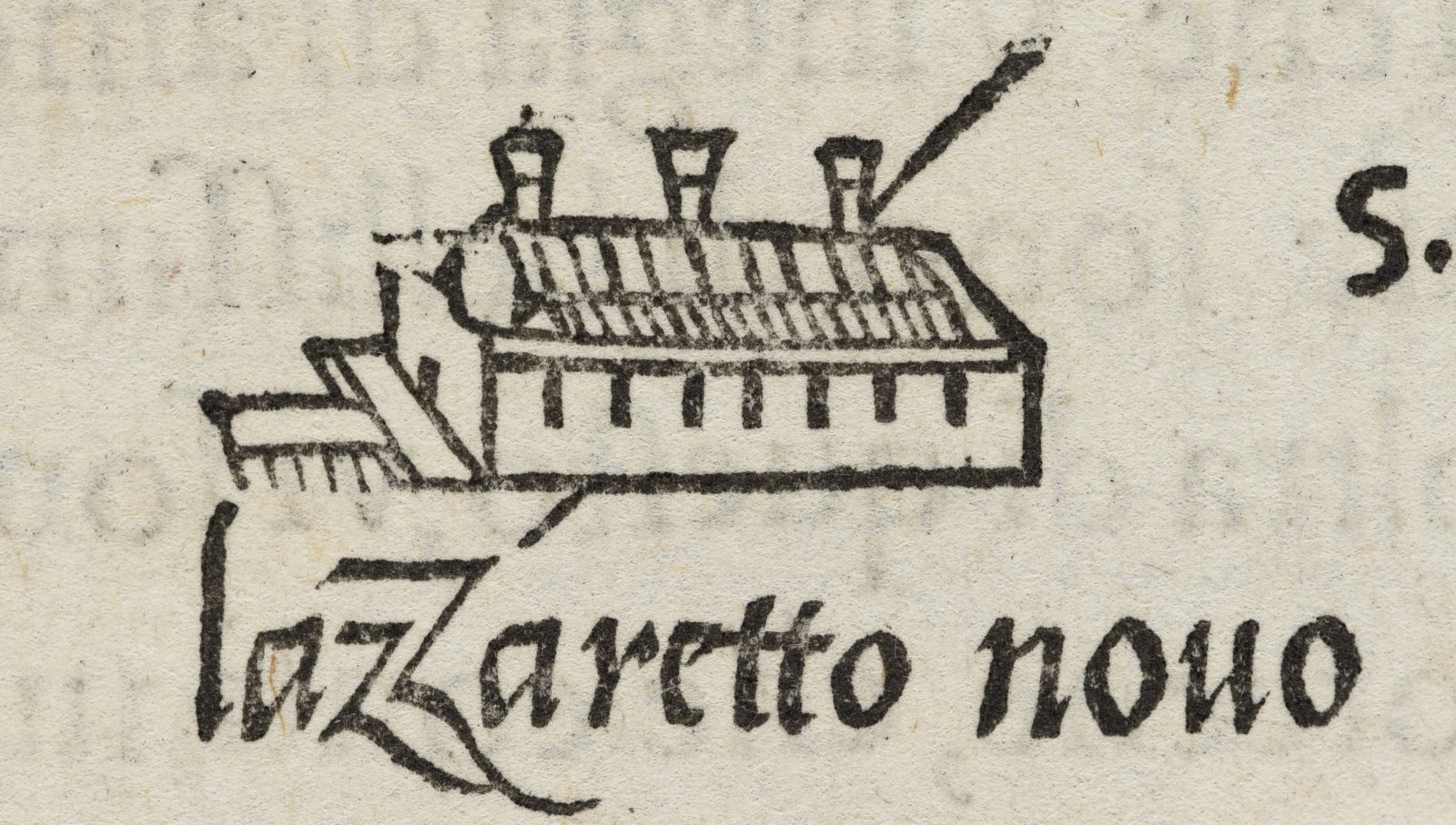USHS Blog
The Plague on Board. Algiers and the American Sanitary Ban of 1818
At one point in time, in the early nineteenth century, piracy was diagnosed not as an issue of plunder, but as a problem of pandemics. In 1818, as plague festered in North Africa, the imputed ‘piratical’ sailors of Algiers were barred internationally from doing their work as corsairs. Sanitary security came to conflate with maritime security for the supposed sake of preventing infection. It was William Shaler, the unmarried busybody acting as US consul in Algiers, who first thought out the sanitary ban and worked to get it implemented. Yet his measures, as commonsensical as he made them out to be, emerged within a context of increasing attempts to exclude Maghrebi sailors from the Mediterranean Sea. Shaler’s sanitary security plans have hardly been studied and though I happened upon them by mere chance in the archives, these plans do seem more to me than irrelevant details. They reflect the enduring policy fantasy that the high seas can be closed to unwanted elements. They echo an enduring wish, ever recurrent in times of international crisis and trouble, that the open waters can be transformed from a boundless place of connection into a bordered realm, a place from which others can be barred.

A US Navy squadron near Algiers, 1815. Source: WikiMedia Commons
Sovereignty and sickness
The epidemic periods of plague, when Y. Pestis transfers from animal hosts via vectors to humans, had come and gone to Algiers in varying intensities. The infectious disease returned after an absence of seven years in June 1817, allegedly brought along by pilgrims traveling from Alexandria. The death tolls were devastating. The late French historian Daniel Panzac estimated that as much as one third of the Algiers urban population died between June and September 1817 alone. The disease disrupted social, economic and political life, bringing food shortages, mounting unrest and the looming threat of internal revolt. Omar Agha, the ruling Dey, was assassinated by Janissary troops in September 1817. They took the outbreak of plague, which came shortly after defeats by American and Anglo-Dutch fleets, as a final indication of Omar’s unbreakable liaison with misfortune.

The front page of William Shaler’s memoirs (1826). Source: Archives.org
William Shaler was out of the city when all this began to happen. He was visiting Tunis and Tripoli as the plague hit Algiers and chose staying on the ships of the US Mediterranean squadron over a return to the consular residence. On board one of the ships of war, he immediately began to draft plans for sanitary measures. Shaler, after all, was a man who hardly ever rested. He was the kind of person who would use an intended vacation at the baths of Spain to write a lengthy report on local commerce. No stranger to pressing his demands either, Shaler, as soon as he heard of the epidemic, requested that sailors from Algiers would be forbidden to visit American ships. Dey Ali Khodja, Omar’s successor, declined and argued that the corsair captains of Algiers had the sovereign right to do so as passports had to be checked.
‘As needs no demonstration’: epidemics and exclusion
Shaler visited Algiers again in April 1818, after cruising around the harbours of Italy and Malta. Hearing that Ali Khodja had died of the plague, Shaler reiterated his old request. In a new statement to Algiers’ Minister of the Marine, he stressed that the US government did not want to deny Algiers its rights as ‘an independent sovereign power’, but that it could not run the risk of getting American citizens infected. The need to keep the ‘devastating pestilence’ from entering the US, which Shaler called the right of ‘self preservation’, supposedly superseded the sovereign rights of Algiers. The ‘self preservation’ of American health was, in Shaler’s words, ‘so obvious a principle of the law of nature as to need no demonstration’. The newly ascended Dey Hussein, facing continuing internal unrest and an American fleet of war anchored in Algiers Bay, chose to concede without any further discussions, thus banning the visiting of US vessels in times of plague.

Sketched portrait of Dey Hussein, 1830. Source: WikiMedia Commons
The sanitary ban pressured the space of manoeuver for Algiers’ corsair sailors. Soon a British fleet appeared off of Algiers too in order to obtain a declaration that Algiers would not send out any corsairs in times of plague. Shaler presented the ban as common sense, as an obivous reply to plague that hardly needed further explanation. The measure actually fitted within a context of intensifying attempts to exclude Maghrebi sailors. Since the later stages of the Napoleonic Wars, North African vessels and merchants were increasingly kept from the ports of southern France by administrative barriers. In 1817, the British government tried to forbid Tunisian corsair ships from sailing through the Channel, or even from appearing in view of the English coast. These policies, moreover, echoed an ascending public rhetoric that pathologized the corsairs as a sickness that should be cleansed from the Mediterranean Sea.

The health office at Naples, from J. Howard, ‘An account of the principal lazarettos…’ (1789). Source: Wellcome Library Collection
Bans and connections
Shaler may have posited his sanitary ban as common sense, but was it really? The duration of the journey across the Atlantic would have ensured that any human infections were apparent long before the ports of New York or Baltimore would be in sight. Nineteenth-century actors would not have known it, but modern research indicates that rodents and fleas are the prime carriers of pestilent bacteria. Barring Algerine bodies from deck may not have helped much when a stowaway rat carried the pest in the holds below. Nonetheless, a trans-Mediterranean network of disease prevention was already in place in 1818 and had been for centuries. During his stops at Leghorn and Messina, Shaler doubtlessly would have encountered the sanitary stations, lazarettos and quarantines. The Mediterranean Sea, as Turkish historian Nühket Varlik argues, was a ‘unified disease zone, with shared epidemiological experiences, as well as a common heritage of medical traditions’. The sanitary ban instead functioned on the basis of attempted exclusion. It implied that barring people from the sea and containing their movement could be a prime solution to international crisis. The manner in which William Shaler eventually met his own fate could raise some final, peculiar ruminations on connectivity: he died in Havana in 1833 during a cholera epidemic.




